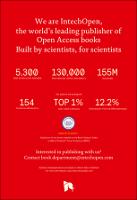Chapter Strengths and Weaknesses for Climate Change: Adaptation in Water Governance: A Comparison Across Six European Regions
Author(s)
Bergsma, Emmy
Alphen, H. Van
Bruggeman, A.
Giannakis, E.
Koti, J.
Kristvik, E.
Loza, P.
Martinez, M.
Muthanna, T.M.
Rocha, F.
Viseu, T.
Zoumides, C.
Language
EnglishAbstract
This chapter comparatively analyses the policy and governance contexts of six European regions that are affected by different hydrological impacts of climate change. The results demonstrate that a major governance strength across regions lies in the organization of management capacities to deal with existing water-related risks. For example, the Dutch context focuses on water safety, Cyprus has a clear policy framework to deal with water scarcity and in the Norwegian city of Bergen, wastewater is well managed. As a consequence of this focus on present-day risks, climate adaptation governance also focuses on historical risks. New or exacerbated risks posed by climate change remain largely untreated, and responsibilities for dealing with climate-related risks remain unspecified, as also becomes clear in the German and Spanish cases. A high degree of governmental fragmentation is identified as another point of weakness. Identified most clearly in the Portuguese case but recognizable in all regional contexts, different subdomains of water management are dealt with under separate policies and are governed by different responsible agencies. Consequently, information about current performance of the water system is scattered and coordinative efforts, which are key to developing adaptation strategies, are hampered.
Keywords
water governance, climate change, regional impacts, adaptationDOI
10.5772/intechopen.74401Publisher
InTechOpenPublisher website
https://www.intechopen.com/Publication date and place
2018Classification
Limnology (inland waters)


 Download
Download